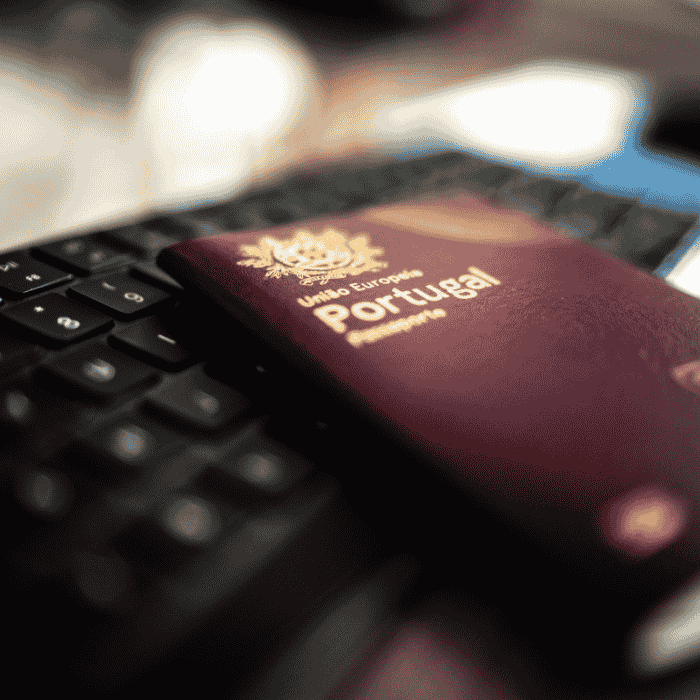D6 Visa Portugal Family Reunification Visa Expert Guidance
The D6 Visa (Portugal Family Reunification Visa) allows legally resident non‑EU foreigners to bring eligible relatives to Portugal. Under Article 98 of the Portuguese Immigration Law, a resident with a valid permit can petition to be reunified with family members abroad. Once approved by the immigration authorities ( AIMA, formerly SEF), qualifying relatives apply for a D6 visa to enter Portugal and then register for a long‑term residence permit. MetConnect LDA guides families through each step of this process with personalized legal and relocation support.

D6 Visa Portugal Eligibility – Who Qualifies as a Family Member?
Portuguese law defines eligible family members under Article 99. This generally includes the resident’s spouse or legal partner (including a recognized de facto union), their minor or dependent children (including adopted children), and dependent adult children who are unmarried and students in Portugal.
It also covers the resident’s dependent parents or grandparents and minor siblings under the applicant’s legal custody. (For example, the Portuguese Embassy confirms that a dependent spouse and children – including adopted children – may apply, as well as financially dependent parents and minor siblings.) All applicants must show a genuine family tie (marriage/birth certificates or proof of partnership) and meet dependency conditions.
Portugal Family Reunification Visa Requirements 2025
To sponsor family, the Portuguese resident (the “principal”) must have a valid residence permit or citizenship. They must also demonstrate adequate income and housing to support their relatives. In practice this means at least one full Portuguese minimum wage (currently about €870/month) plus an extra 50% for a spouse, along with documented proof of accommodation (e.g. rental or property deed) sufficient for the family.
Applicants for the D6 visa (family members) need to submit a range of documents, including:
Minors also need consent letters from both parents or guardians. (Non‑Portuguese documents must be officially translated.) The sponsoring resident must be ready to show their own documents too (e.g. permit card, income statements, tax returns, rental contract).
Application Process (Step-by-step, consular and AIMA phases)
Throughout this process, MetConnect provides end‑to‑end support – from preparing the family’s AIMA application, to organizing documents for the consulate, to attending biometric and legal appointments. Our team ensures every step is completed correctly and on time, and we arrange translations and notary services if needed.
Portugal Dependent Visa Benefits – Work, Study, Healthcare
While under the D6 visa and subsequent residence permit, family members enjoy essentially the same rights as Portuguese nationals. They may work or study in Portugal without restriction, enroll in the Portuguese public school system, and join the national health service ( SNS) once they are registered.
Social benefits and tax allowances also become available. After five years of continuous legal residence (including time under the family visa and permits), the family can apply for permanent residency or Portuguese citizenship (Portugal allows dual citizenship). Importantly, the D6 visa also confers the right to travel visa‑free within the Schengen Area for short visits.
Portugal Family Reunification Visa Processing Time and Costs
Family reunification cases typically take several months from start to finish. AIMA’s decision on the reunification petition usually arrives in about 60 days. After that, the consular visa process can take another 1–2 months on average. (Sources note that “the application takes three to six months to process” overall.) The D6 visa fee is currently about €90 for adults (children under 12 are often exempt ). In addition, consulates may charge a handling fee (e.g. VFS service charge) and standard permit issuance fees in Portugal. These costs can vary by country and over time, so MetConnect will provide the latest fee schedule.
We always recommend applying early and ensuring a complete dossier to avoid delays. Common issues include missing translations, incomplete relationships proofs, or scheduling backlogs with AIMA. Our team stays up-to-date on policy changes (for instance, SEF was replaced by AIMA in late 2023) and can help you overcome any obstacles.
Alternative Family Reunification Pathways
In some cases, a D6 visa may not be the only or best option to bring family members to Portugal. MetConnect can advise on all legal visa routes and their family provisions. For example:
Each pathway has its own conditions (investment amounts, income levels, etc.), processing times, and costs. We can help compare them based on your situation. For instance, the Golden Visa has higher financial thresholds but may process faster, while the D7 Visa and D2 Visa routes rely on income or business criteria. See our pages on the Golden Visa and D7 Visa, or contact us for a personalized comparison of your family’s options.

FAQ: Common Questions
Non-EU family members of a Portuguese resident (with a valid permit or citizenship) – specifically the spouse or registered partner, dependent children (including adopted), dependent parents/grandparents, and under-age siblings – can apply. The sponsoring resident must first get AIMA approval for reunification.
You need proof of relationship (marriage/birth certificates), the sponsor’s legal residency (permit card), evidence of income and housing, the AIMA authorization letter, passports and photos, travel health insurance, police clearance, and translations of foreign documents Minors also need a parental consent letter.
The family reunification petition takes about 2 months at AIMA. The consular visa process then takes roughly another 1–2 months. In total it often takes 3–6 months from start to visa grant. Once you have the visa, you have 120 days to enter and apply for the residence permit.
Yes. Once the family member has their residence permit in Portugal, they have full rights to work or study just like Portuguese citizens. They can also enroll in the public health system and schools.
The initial D6 visa is valid for up to 120 days (two entries). After entering Portugal, the residence permit is typically issued for 1–2 years, matching the sponsor’s status. If the sponsor has permanent residency or citizenship, family permits are usually two years. You must renew the family’s permit before it expires; renewals can be requested at AIMA (usually within 30–60 days before expiry). After 2 years the permit can be renewed again, and after 5 years the family can apply for permanent residency or citizenship.
EU/EFTA/Swiss citizens do not need a D6 visa for family; their relatives can simply register at AIMA (after 3 months stay). For highly-skilled workers on a Blue Card, family reunification is also possible under favorable terms (applications can be simultaneous). We can advise on the specific procedures for those cases.